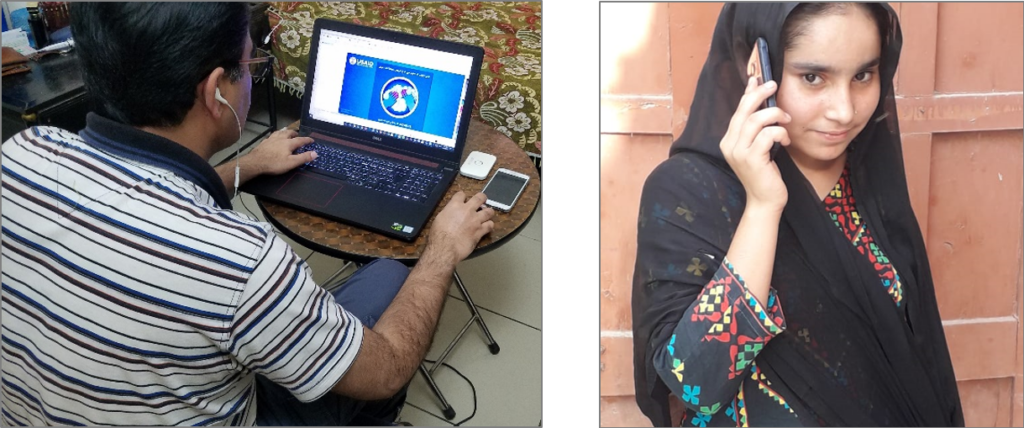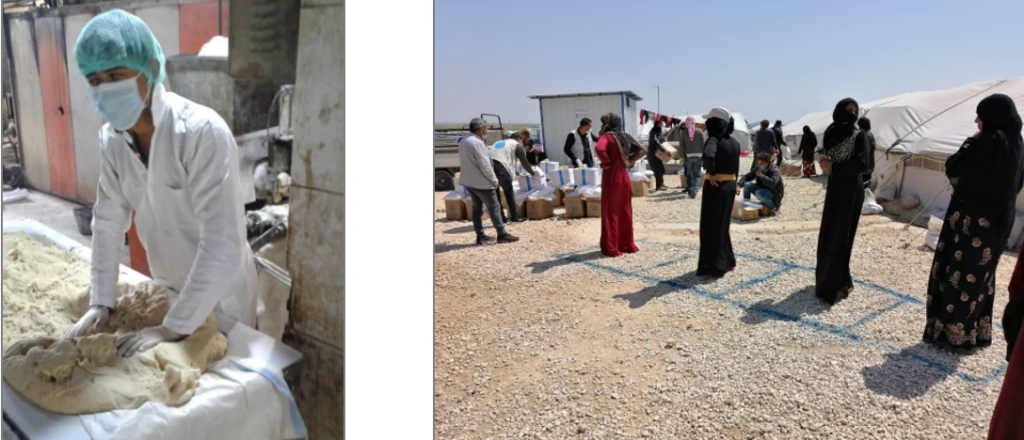Blumont teams at the forefront of the COVID-19 pandemic prioritize disseminating accurate and reliable information to help keep communities safe, while continuing to support beneficiary needs. Teams are working tirelessly to keep people connected while adopting preventative measures to stop the spread of illness.
Promoting Local Engagement in Pakistan
Local engagement has been central to the progress of the eight-year USAID-funded Sindh Community Mobilization Program—with more than 100 communities participating in school improvement planning. Nearly 134,000 students are now enrolled in the primary, elementary, and secondary schools supported by CMP.
With schools now closed to slow the spread of COVID-19, the team is continuing outreach to the broad local networks established throughout Sindh. Taking a “Care for Community,” approach, Blumont is connecting with key stakeholders and beneficiaries through mobile and digital platforms to keep the collaborative spirit going. The program is reaching out to head teachers, parents/leaders of school management committees, and local governance officials to share updates on the status of the program, as well as COVID-19 resources from partners, including USAID information on good hygiene and social distancing.

In the first week alone, “Care for Community” has connected with nearly 300 people across 8 Sindh districts. In response to messages, one district Commissioner shared an update on local cases of illness, as well as how citizens are rallying to support one another with food distribution; a school management committee member outlined how they’d taken initiative to work with a local company to distribute supplies to needy families; and education officials shared updates on the safety of staff (all of whom are well).
The team will integrate feedback from discussions to build virtual engagement with public sector partners and others, including ideas to engage students. Each of these stakeholders have played an integral role in driving progress in Sindh schools, and Blumont is working to ensure that they are all ready to step in when school is back in session.
Delivering Bread While Taking Precautions in Syria
For six years, the USAID-funded Syria Emergency Food Security Program has been improving food security for vulnerable communities in northeast Syria by delivering high-quality, regionally procured flour to local bakeries that is then distributed to camps and host communities. In 2019 alone, more than 3.1 billion loaves of bread were distributed.
As communities face new challenges with the outbreak of COVID-19, the team is working to provide uninterrupted service while keeping people safe.
The team shared World Health Organization information on handwashing, social distancing, and other preventative measures throughout camps, host communities, collective centers, partner bakeries, and on the trucks that transport flour to the bakeries. Personal protective equipment – masks, gloves, overalls, caps, and hand sanitizer – was also distributed to all bakery workers.
During bread distribution, preventative measures are taken to stop large crowds from gathering. Households come to food distribution points block by block, limiting crowd sizes, and spacing out lines. Upon arrival to the distribution point, families wash their hands using new mobile units and are checked for any signs of fever.

“I cannot describe the extent difficulties we would face if Blumont stopped delivering bread,” said Hussein. “I have been living [in a camp in northeast Syria] for three years and they have not stopped giving us bread since day one, despite the many challenges and risks they face.”



